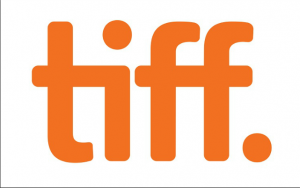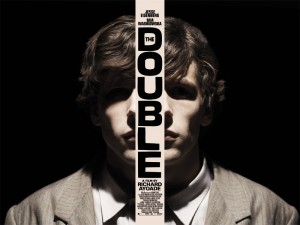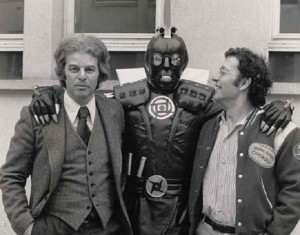Metro Canada In Focus: September 11, 2001: The day TIFF stood still
 By Richard Crouse – Metro Canada
By Richard Crouse – Metro Canada
Like millions of people I remember exactly what I was doing the morning of Tuesday, Sept. 11, 2001.
When the first plane hit the World Trade Center I was walking down Bloor Street in Toronto, on my way to the InterContinental hotel to do a day of Toronto International Film Festival coverage.
I didn’t register anything unusual in the air until I got to the hotel. People on the street may have been walking and talking a bit faster, acting a bit more animated than usual, but not so that I noticed.
Entering the hotel was a different story. The halls were eerily silent.
What was usually a cheery beehive of activity with camera crews, stressed publicists and actors roaming around, was now quiet, still.
At 9 a.m. I walked into our makeshift interview suite on the third floor just as the second plane hit. My crew were sitting around the television. Sobs from the rooms next to ours broke the stunned silence.
What the hell was going on?
What was going on was a change in all our lives; a new era where the unthinkable became possible.
It was a confusing day. With no details we, like many others, pressed on with the business at hand.
David Lynch came and went, smoking American Spirits and chatting about his film Mulholland Drive.
A handful of others walked the halls, unsure of what else to do, keeping previously scheduled interview slots.
When I mentioned to New York actress Adrienne Shelly that I couldn’t reach my girlfriend, who was living in Manhattan, she loaned me her cellphone.
“For some reason it seems to get through,” she said.
It did, and after a quick call to make sure she was safe, the full impact of what had just happened sunk in. Sometimes the small stuff, the personal things — like the anxious voice at the other end of the line — help you understand the magnitude of a grim situation.
We cancelled the rest of the day but I stayed put, talking to my hotel neighbours, most of whom were Americans, many from New York.
There were hugs, tears and bafflement in equal measure. TIFF elected to cancel many of the day’s events and tone down the glitz for the rest of the festival.
But the show would go on and in that moment art won over terror.
What we began to hear were stories from New York filmmakers who, with all flights cancelled to and from the city, were loading cans of film into their cars and driving to the festival.
It wasn’t about vanity and it wasn’t about ego.
It was about filmmakers, the storytellers of our times, the people who document our lives, not being silenced.
The rest of the festival was a sombre affair but there was a steeliness uncommon at the usually glitzy event. We gathered, watched films, communicated and healed, sending a message that the uncertainty of the times would not prevent us from expressing ourselves, from sharing stories.
Fourteen years later I think back to those days and realize that terror didn’t win on 9/11.
As long as we don’t allow ourselves to go silent, as long as we breathe life into our stories and experiences on film and elsewhere, we won’t and can’t live in fear.


